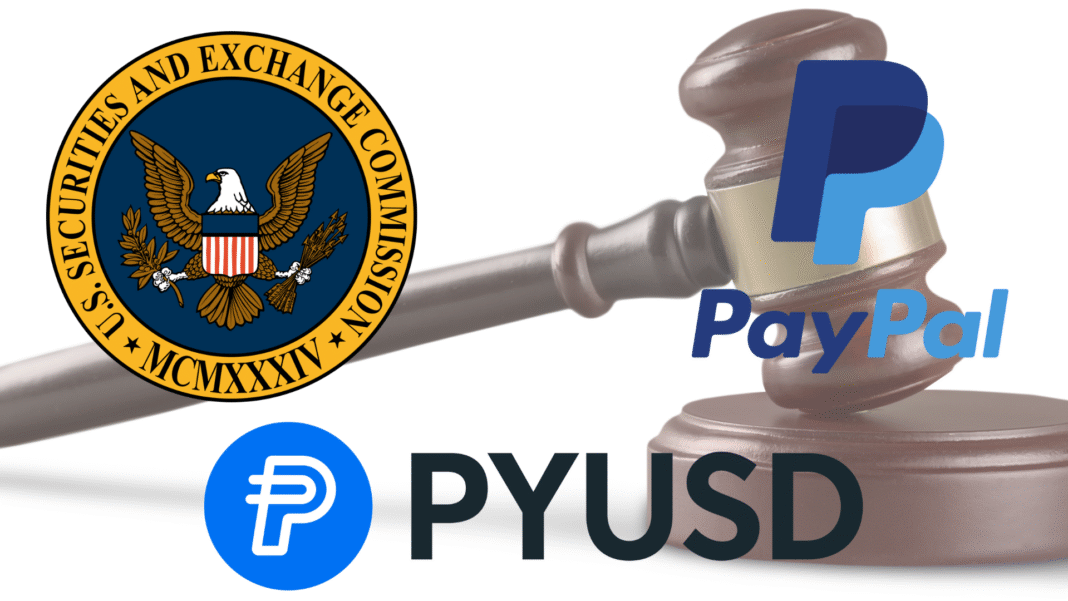PayPal announced that the U.S. SEC has closed its inquiry into PayPal USD, its U.S. dollar stablecoin. The company revealed in a regulatory filing that the SEC, after probing PYUSD, will not pursue enforcement action.
This brings an end to a review that began when PayPal received a subpoena from the SEC’s Division of Enforcement in November 2023.
Regulatory Cooperation
At the time of the happenings, PayPal confirmed it was working with regulators and vowed to provide the requested documents. In February 2025, the SEC informed the payments firm that it would withdraw its investigation and take no further steps.
PayPal says this outcome offers relief not only to its platform but also to the broader crypto community, which has watched regulatory moves closely for direction.
Uncertain Regulatory Landscape
Despite the SEC’s decision, the stablecoin sector still faces unclear rules. In a notable development, US President Donald Trump signed the STABLE Act, establishing guidelines for dollar-backed tokens such as Tether and Circle’s USDC.
Also Read: LayerZero Launches Cross-Chain Transfers For PayPal Stablecoin Between Ethereum & Solana
Even so, stablecoin issuers must navigate a patchwork of evolving regulations. The SEC’s choice to step back from the PYUSD case may hint at a lighter touch for established companies, yet it does not erase the overall uncertainty in the market.
Growth and Incentives
PYUSD has grown steadily this year. CoinGecko data shows its circulating supply has climbed by 75% since January 2025, though it remains 14% below its peak of just over $1 billion in August 2024.
PayPal has introduced fresh incentives to drive further adoption. On April 23, the company unveiled a loyalty program offering US users 3.7% annual rewards for holding PYUSD on the platform. This move aims to make the stablecoin more attractive compared to other low-yield assets.
Partnerships and Performance
Earlier, PayPal announced a collaboration with Coinbase to expand PYUSD’s reach. This partnership is designed to make the stablecoin more accessible and boost its use across different services.
Meanwhile, PayPal wrapped up its first quarter with strong earnings and completed a significant share buyback program. Together, these results and strategic efforts underline the firm’s commitment to integrating stablecoins into its broader payments ecosystem.
The SEC’s decision to abandon its investigation into PYUSD represents a hopeful moment for PayPal and the crypto industry at large. With regulatory questions still unresolved, successful launches like this one can help shape future rules.
PayPal’s growth initiatives and rewards program may further cement PYUSD’s standing in a competitive market. As stablecoins evolve, companies and regulators alike will watch closely to ensure these digital assets remain secure, transparent, and widely accepted.
Also Read: Federal Reserve Governor Waller Backs Stablecoins, Promotes Its Banks & Non-Banks Usage


